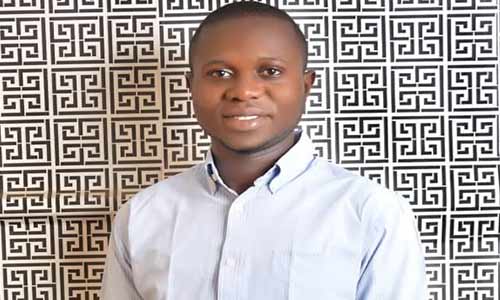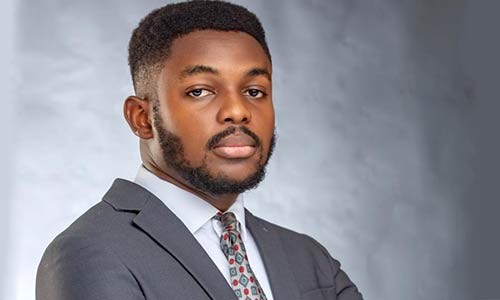By O. M. Atoyebi, SAN
The world has never been more ignited in recent times for survival than at the end of 2019 and the launch of 2020 through to the mid-year and still counting. For many, the outbreak of the COVID-19 pandemic projected a rather unannounced arrival of end-time. While the world is still adjusting to the disease and fighting to curb it, unfortunately, COVID-19 has triumphed in disrupting the entire chain of human affairs across the globe with its rippling effect.
The African Free Trade Zone and the Economic Community of West African States (ECOWAS) Trade and Commerce, being one of those economic engagements violently hit and halted by this crisis, along with the repercussions birthed by various emergency measures adopted by member countries and regions in curbing its overarching population sapping effects, would have otherwise been the take-off of a tremendous economic transposition for the African continent and indeed, the rest of the world.
The effect of the pandemic and with the gradual easing of imposed lockdowns in member countries (which until recently resulted in an indirect placing of unintended embargo on these kinetic commercial interactions, all in a bid to prevent the multiplicity of the contagion) spells for the growth of the African market, is the focal point of this work.
THE AFRICAN CONTINENTAL FREE TRADE AREA
The African Continental Free Trade Area (hereinafter referred to as “AfCFTA”) is a trade deal designed to drop barriers in intra-African trade[1]. According to Brookings Institution, intra-African exports made up only 19% of total trade in 2018, compared to 59% and 69% for intra-Asia and intra-Europe trade respectively[2], this sharp variance defines the rationale for the need to put such a long overdue deal in place. Simply put, the AfCFTA aims at rewriting this unproductive narrative by means of increasing in-house African trade through the removal of barriers.
The 55-nation continental Free-trade Zone which has been referred to as the world’s largest Free-trade Zone, is being expected to create $3.4Trillion combined gross domestic product of economic bloc with 1.3 Billion people across Africa and constitute the largest new trading bloc in the world, since the inception of the World Trade Organization in 1994[3]. Interestingly, the International Monetary Fund (IMF) remarked that the AfCFTA is a “potential economic game changer and eliminating tariffs (in Africa) could boost trade in Africa by 15-25% in the medium term”.
COVID-19 AND THE KICK-OFF OF THE LONG-AWAITED AFRICAN FREE TRADE AGREEMENT
The landmark African Free Trade Agreement is the instrument intended to initiate the laid out liberal trans-border commercial activities across the coastal regions of the continent once implemented on the 1st day of July, 2020, having been ratified by all member countries, with Nigeria following suit in July, 2019 (after series of delays and protracted consultations with relevant stakeholders). This decision of the largest economy in Africa to sign the agreement was a massive amplifier to the deal. The AfCFTA entered into force on 30th May, 2019[4].
A Free Trade Agreement simply means where a country has a lower cost of production in her home Nation, such Nation will gain market share by offering products cheaper than the competition[5]. Also, by the Agreement, Nations can no longer artificially increase prices of imported goods by imposing import duties[6]. Free Trade Agreements are designed to cut trade tariffs among member countries, help make a country’s exports cheaper and get easier access to other markets. It removes border taxes or trade barriers, get rid of quotas in such a way that there will be no limit to the amount of trades indigenous businessmen can conduct. These tariffs are usually in the form of taxes.[7]
Beyond dispute is the fact that though the Agreement is already legally in force, a number of details are still unsolved as part of the first phase of the process which would have brought the July zero hour for the take-off of trade in goods and services under the new tariff into fruition. This was as a result of the direct fallout of the African Union’s inability to hold its earlier scheduled Conference in Johannesburg, South Africa in May, 2020, to place the lid over the Agreement, owing to the cross-border travel restrictions and in-country imposition of lockdowns to arrest the rapid spread of the coronavirus pandemic[8]. As it stands, only a rescheduling of both the meeting and take-off dates by the Assembly as soon as practicable, would see to the successful unveiling of trading inter-relations in the zone as initially earmarked, especially with the gradual easing of the somewhat stiff control measures placed in concerned territories.
ECOWAS TRADE AND COMMERCE
Trade in the Community is evolutionary. There was a time when old trading links were still being relied on to sustain business exchanges in the area. What is being awakened now however is trade with development dimension. The Economic Community of West African States (ECOWAS), since its inception has had a trade policy designed to increase intra-regional commerce, raise trade volume and generally galvanize the economic activities within the region in such a way as to positively impact on the economic wellbeing of ECOWAS citizens[9].
The ECOWAS trade policy is also meant to foster the smooth integration of the region into the world economy with due regard for the political choices and development priorities of states in the desire to engender sustainable development and reduction of poverty[10].
The total trade of the region has averaged $208.1 Billion. Exports are projected at approximately $137.3 Billion while imports total about $80.4 Billion. The main active Countries in trade are Nigeria; which alone accounts for approximately 76 percent of total trade, followed by Ghana; (9.2 percent) and Cote d’Ivoire; (8.64 percent). The trade surplus of the region, estimated at about $47.3 Billion is attributable to Nigeria ($58.4 Billion) and Cote d’Ivoire ($3.4 Billion) when all other Countries have a deficit in the trade balance[11].
Today, the total ECOWAS trade has increased by an average of 18 percent per year between 2005 and 2020. It is dominated by Mining Commodities (oil resources, iron, bauxite, manganese, gold, etc..) and Agriculture (coffee, cocoa, cotton, rubber, fruits and vegetables and other products rather marketed within the region such as dry cereals, roots and tubers, livestock products) etc. Nigeria, Cote d’Ivoire, Ghana and Senegal concentrate 87 percent of this trade, with 79 percent of regional imports ($55,520 Million per year) and 94 percent of exports and re-exports ($77,792 Million per year)[12].
THE ECOWAS TRADE LIBERALIZATION PROGRAMME: CATALYST FOR ECONOMIC TRANSFORMATION IN THE COMMUNITY
A main feature of the Community’s trading and commercial policy is ECOWAS Trade Liberalization Programme (ETLP). The objective of the programme is to progressively establish a Customs Union among the Member States of the Community over a period of fifteen years, starting from 1st January, 1990, the date of entry into force of the Scheme. The Customs Union will among others involve the total elimination of customs duties and taxes of equivalent effect.
The ECOWAS Trade Liberalization Programme, involves three groups of products; unprocessed goods, traditional handicraft products and industrial products. The programme is meant to give several advantages to member States and their citizens as they trade among themselves. An example of this is, the advantages accruing to unprocessed goods imported from a member state as contained in Decision C/DEC.8/11/79 of the Council of Ministers is, total exemption from import duties and taxes, free movement without any quantitative restriction as well as non-payment of compensation for loss of revenue as a result of their importation, provided that unprocessed products among other conditions, originate from member states of the Community and must appear on the list of products annexed to the decisions liberalizing trade in these products.
COVID-19 CLOG ON ECOWAS TRADE AND COMMERCE
The unpremeditated advent of COVID-19 and the measures placed to curb its dispersion across ECOWAS member states, with the commonest of such steps being the ban on cross-border movement, resulted in a huge dip in the progress of the ETLP in particular, and all forms of commercial interrelations in the region in general. This could otherwise be channeled along a more productive and economically transforming axis for the concerned States and in fact, even the rest of the Continent.
Continuous Trade in both goods and services would have played a key role in overcoming the pandemic and limiting its health and economic impact, especially on the poor through adopting coordinated measures on trade in response to the COVID-19 epidemic. Trading and Commerce would have contributed immensely by providing countries access to essential medical goods (including material inputs for their production) and services to help contain the pandemic and treat those affected; ensuring access to food, maintaining and enhancing nutritional intake of the poor which will boost immune systems and contribute to the ability to resist the virus; providing farmers with necessary inputs (seeds, fertilizers, pesticides, equipment, veterinary products) for the next harvest; and supporting jobs and maintaining economic activity in the face of a global recession, disruption to regional and global value chains, and reduced employment and increased poverty.
Conversely, measures to contain the pandemic in West-Africa and the whole of Africa is reducing trade. African countries are highly dependent on global trade, and measures put in place that limit trade are rapidly having negative impacts on most countries hitherto operating in the ETLP. Thirty-two countries in Africa have put in place flight restrictions[13]. Some have suspended all commercial passenger flights, others have blocked international flights, while a few have limited the restrictions to countries with high infection rates.
Experience from previous crises, such as the 2008-2011 food price crisis of 2009, clearly shows that imposing export restrictions on medical and food products will increase the international prices of these products which will impact most negatively on the poorest people. Export bans on food also lowers domestic prices which reduces the incentive to grow food crops in the next season. If the pandemic spreads in Africa the same way as in Europe and the USA, it will result in critical hotspots that could overwhelm local health capacities and food security, the two most vital survival necessities for everything alive.
URGENT NEED FOR IMPLEMENTATION OF THE AfCFTA
The last World Economic Outlook from IMF forecasts a -3% contraction in world GDP in 2020 and a -1.6% contraction for sub-Saharan Africa for the same period[14]. The fall in the world GDP will no doubt lead to a severe fall in the exports demand for African products due to the fall in the global demand as COVID-19 persists. Given the specificities of African economies, the negative impact would be more than proportional, hence more trade among African nations and between Africa and the rest of the world is of essence. The AfCFTA will thus have the advantage of boosting intra-African trade contributing to mitigate the rapid decline in African GDP[15].
COVID-19 is both a supply and demand shock. Given this magnitude, the crisis may lead to a significant upending of global value chains, perhaps leading to a higher reliance on regional value chains. Given the potential for the AfCFTA to serve as a real economic engine at the continental level, policymakers must maintain the momentum towards its implementation so as to empower the region to more successfully navigate the hit its economies will take and have already taken. Trade liberalization under the AfCFTA is among many policies that could help pull countries out of recession after the pandemic is over.
CONCLUSION
Indubitably, the very soul of every nation is the income that accrues to it. From the provision of basic amenities (with food, shelter and even clothing being the constant variables), to the more political cum economically motivated projects, policies and programmes aimed at maintaining the stronghold of a nation among its other dominating contemporaries. African countries have managed to devise tactical progressive models designed to rescue the continent from sinking into the abyss of hunger, war and poverty, by evolving a medium via which trade and commercial activities will flourish among the inhabitants of the black-nation with little or no need of reliance on external channels.
The bid to introduce the AfCFTA and the push to advance the long existing ECOWAS Trade and Commerce (for the benefit of member-countries and by extension, the whole of Africa), have been the forces at the forefront of achieving this mandate. Unfortunately, just when plans were set to go on motion, the COVID-19 pandemic trotted its way from other parts of the Globe into the shores of the Continent and is threatening to cancel the anticipated success of these plans.
With the stiff measures to fight the pandemic now being tenderly relaxed coupled with the positive available windows it has helped to expose, the time is ripe for African leaders to intensify their strength to see to the quickened implementation and diversification of the masterplan for the economic development and transformation of our dear continent.
Paper by Oyetola Muyiwa Atoyebi, SAN.
Mr. Oyetola Muyiwa Atoyebi, SAN is one of the most notable professional Nigerian youth, who has distinguished himself in his professional sphere within the country and internationally. He is the youngest in the history of Nigeria to be elevated to the rank of a Senior Advocate of Nigeria. At age 34, he was conferred with the prestigious rank in September, 2019. Mr. O.M. Atoyebi, SAN can be characterized as a diligent, persistent, resourceful, reliable and humble individual who presents a charismatic and structured approach to solving problems and also an unwavering commitment to achieving client’s goals. His hard work and dedication to his client’s objectives sets him apart from his peers.
As the Managing Partner of O.M. Atoyebi, SAN and Partners, also known as OMAPLEX Law Firm, he is the team leader of the Emerging Areas of Practice of the Firm and one of the leading Senior Advocates of Nigeria in Information Technology, Cyber Security, Fintech and Artificial Intelligence (AI). He has a track record of being diligent and he ensures that the same drive and zeal is put into all matters handled by the firm. He is also an avid golfer.
Email: [email protected]
LinkedIn: https://www.linkedin.com/in/atoyebi-oyetola-muyiwa-san-804226122/
[1] https://nairametrics.com/2019/07/30/acfta-a-potential-game-changer-for-africa/
[2] ibid
[3] https://www.theafricareport.com/27678/coronavirus-delay-of-afcfta/
[4] https://www.tralac.org/resources/6730-continental-free-trade-area-cfta.html
[5] https://nairametrics.com/2019/07/30/acfta-a-potential-game-changer-for-africa/
[6] ibid
[7] ibid
[8] https://nairametrics.com/2020/04/30/take-off-of-africa-free-trade-zone-suffers-set-back/
[9] https://www.ecowas.int/ecowas-sectors/trade/
[10] ibid
[11] ibid
[12] ibid
[13] https://africacdc.org/covid-19/covid-19-resources
[14] https://www.brookings.edu/blog/africa-in-focus/2020/05/22/the-afcfta-and-measures-to-facilitate-trade-could-significantly-mitigate-covid-19s-economic-impact-in-africa/
[15] ibid






